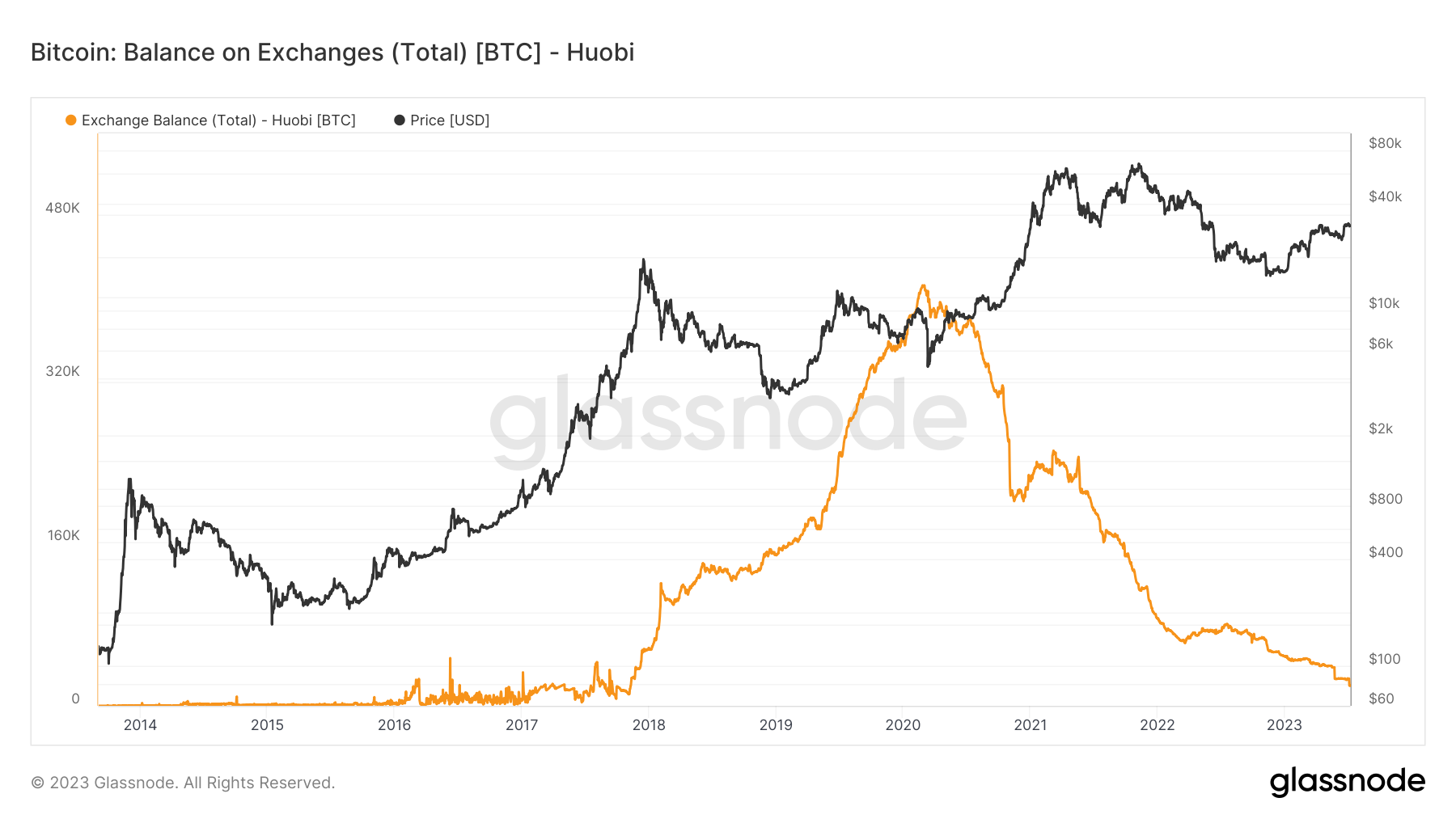First Mover Americas: Bitcoin Holding Above $30K After Quiet Weekend
This article originally appeared in First Mover, CoinDesk’s daily newsletter putting the latest moves in crypto markets in context. Subscribe to get it in your inbox every day.

Bitcoin (BTC) and ether (ETH) were little-changed on Monday, but a number of crypto gainers from last week were pulling back. In macro news to come this week, investors will be focusing on U.S. inflation figures on Wednesday for signals regarding the Federal Reserve’s next move. Since breaking above $30,000 in June, bitcoin has traded between $29,500 and $31,500. “These levels could be important in the near-term,” said SEBA Bank in a morning note. “With U.S. CPI expected this week, a break of either level could see a trend emerge.” Among those cryptos giving back some of last week’s gains were Avalanche’s AVAX, down 5% over the past 24 hours, and Solana’s SOL, which dipped 4% over the same time frame.
Coinbase (COIN) acknowledged the possibility that federal securities laws would apply to its listings years ago, the U.S. Securities and Exchange Commission (SEC) argued in a new filing Friday. The agency was responding to a Coinbase filing which claimed the SEC does not have sufficient jurisdiction to bring a lawsuit against it. The SEC sued Coinbase a month ago, alleging it was operating as an unregistered broker, clearinghouse and exchange, having listed at least 13 different cryptocurrencies that are unregistered securities. In Friday’s court filing, the SEC said that it would oppose any motion for judgment Coinbase might submit, and asked a court to strike the exchange’s arguments that the suit violated the major questions doctrine and other concerns. “Coinbase, a multi-billion-dollar entity advised by sophisticated legal counsel, argues it was unaware that its conduct risked violating the federal securities laws, and suggests that by approving Coinbase’s registration statement in 2021 the SEC confirmed the legality of Coinbase’s underlying business activities – at that time and for all time,” the SEC said in its filing.
Around 15 retail central bank digital currencies (CBDCs) could be in circulation across the world by the end of this decade, according to a survey carried out by the Bank for International Settlements (BIS). A Switzerland-based body owned by 63 central banks representing around 95% of the world economy, the BIS said nine central banks had also indicated they’re “very likely” to issue a CBDC for wholesale use in financial markets within the next six years. Of the 86 central banks surveyed by BIS, 93% are now undertaking CBDC work, the study said, with major jurisdictions such as India, the U.K. and the European Union all seriously exploring issuing a digital version of their fiat currencies.

-
The number of bitcoin held in wallets tied to cryptocurrency exchange Huobi has dropped below 20,000 BTC, the lowest since 2017.
-
The balance has declined to levels which become increasingly critical to maintain on-exchange liquidity, according to Deutsche Digital Assets.
-
“Huobi’s stablecoin reserves in Tether (USDT) also appear relatively low. This could become a source of further uncertainty for crypto markets down the road if Huobi experienced further outflows,” analysts at Deutsche Digital Assets said in a weekly report.
Disclaimer: This article was written and edited by CoinDesk journalists with the sole purpose of informing the reader with accurate information. If you click on a link from Glassnode, CoinDesk may earn a commission. For more, see our Ethics Policy .
Edited by Stephen Alpher.









